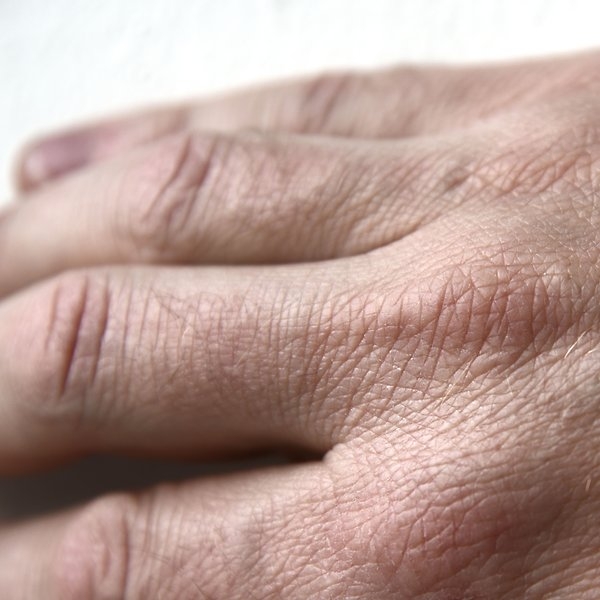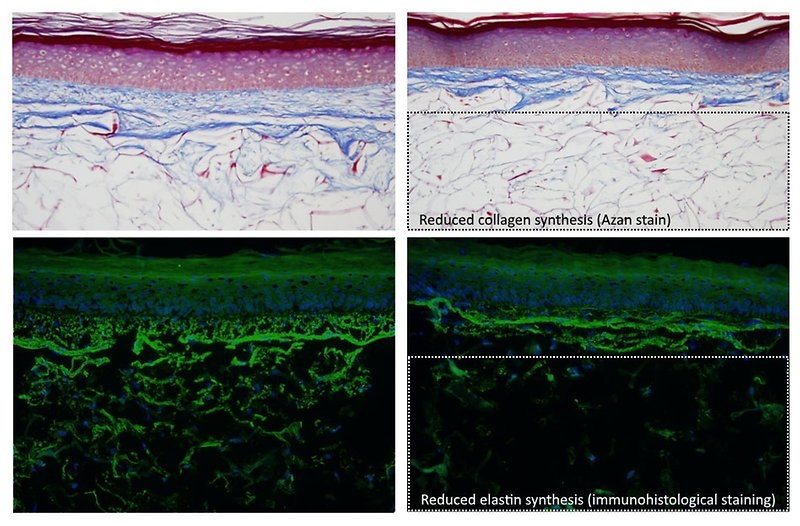The basis for the new development was the Phenion full skin model, an already validated in vitro model used to investigate DNA damage to the skin. The researchers succeeded in standardising the production process for their new model which is called Phenion® AGED skin model. It differs from its predecessor by different morphological and physiological properties according to the aged human skin. For example,
the synthesis of connective tissue proteins such as collagen and elastin is reduced, whereas protein-degrading enzymes are released to a greater extent.


Left: Aiged skin. Right: immunhistologically stained Phenion® AGED skin model.
Source: Henkel AG.
The model can be used for a wide range of questions, such as drug tests, toxicity tests, basic research into skin aging or skin tumor research.
Source:
https://www.henkel.com/press-and-media/press-releases-and-kits/2018-04-19-milestone-reached-in-skin-ageing-research/846060




 Dr. rer. nat.
Dr. rer. nat. Menschen für Tierrechte - Tierversuchsgegner Rheinland-Pfalz e.V.
Menschen für Tierrechte - Tierversuchsgegner Rheinland-Pfalz e.V.